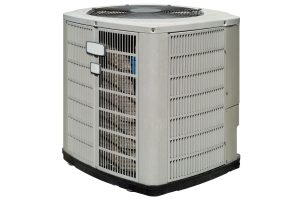If you’ve recently noticed multiple clicking noises when starting up your air conditioner, you might be wondering if it’s a cause for concern. While some noises from your AC unit are normal, repeated clicking sounds often indicate that something is amiss.
In this blog post, we’ll explore the potential causes of these clicking noises, why they suggest imminent air conditioning repair in Chatham, and what steps you should take to address the issue before it leads to more significant problems.
Understanding the Clicking Noise
The clicking noise you hear when starting up your air conditioner usually comes from the relay or control panel. While one or two clicks are standard as the system cycles on and off, multiple or persistent clicking sounds suggest that something is not working correctly.
Common Causes of Clicking Noises
- Capacitor Issues: One of the most common reasons for clicking noises in an AC unit is a failing capacitor. The capacitor is crucial for providing the initial surge of power needed to start the compressor and fan motor. When it starts to fail, it can cause the relay to click multiple times as it struggles to send the necessary power.
- Electrical Problems: Faulty wiring or connections can lead to electrical issues within your air conditioner, resulting in clicking noises. Loose connections or damaged wires can cause the relay to malfunction, leading to repeated clicking sounds as the system attempts to start.
- Thermostat Issues: Sometimes, the problem can stem from a malfunctioning thermostat. If the thermostat is not communicating correctly with the AC unit, it can cause the system to start and stop frequently, producing a clicking noise each time.
- Relay Problems: The relay itself might be defective. The relay is responsible for sending power to the compressor and fan motor. If it’s malfunctioning, it can lead to a repetitive clicking noise as it struggles to engage properly.
Why Clicking Noises Indicate Imminent Repairs
Persistent clicking noises are more than just an annoyance—they are a warning sign that your air conditioner may soon require repairs. Ignoring these sounds can lead to more significant issues and potentially costly repairs down the line.
Potential Consequences
- Complete System Failure: If the capacitor or relay fails completely, your air conditioner may stop working altogether. This could leave you without cooling during hot weather, leading to discomfort and potential health risks.
- Compressor Damage: The compressor is one of the most expensive components to replace in an air conditioner. If the capacitor or relay fails, it can put extra strain on the compressor, potentially leading to its failure and requiring a costly replacement.
- Increased Energy Bills: A malfunctioning air conditioner often works less efficiently, leading to higher energy consumption and increased utility bills. Addressing the clicking noises promptly can help maintain your system’s efficiency and save you money.
What to Do If You Hear Frequent Clicking Noises
If you notice multiple clicking noises when starting your air conditioner, it’s essential to take action quickly. Here are some steps you can take:
- Turn Off the System: To prevent further damage, turn off your air conditioner and refrain from using it until a professional can inspect it.
- Schedule a Professional Inspection: Contact a licensed HVAC technician to diagnose and repair the issue. They can check the capacitor, relay, wiring, and other components to identify the root cause of the clicking noises.
- Regular Maintenance: To prevent future issues, schedule regular maintenance for your air conditioner. A professional tune-up can catch potential problems early and ensure your system runs smoothly.
Established in 1912, Max Sr & Paul Schoenwalder Plumbing, Heating and Air Conditioning, A Corp. is your trusted resource for reliable AC repair. Reach out to us today.

